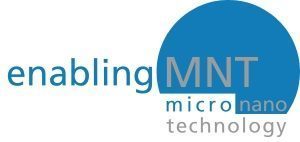Design for Testability (DfT) is fundamental to digital system design. In modern chips, the handling of high volumes of test data requires the integration of test access and control structures for logic, cores, memory and interfaces. A variety of test strategies must be supported through these structures to ensure manufacturability. Defects in nanometer devices and interconnect infrastructure are caught and variability in process is handled to prevent yield problems. The move to Built-in Self-Test continues and the emergence of 3D systems is becoming clearly visible. Both presents new challenges to the design and test communities.
The first part of this course will focus on the basic knowledge needed to be effective as Design for Test engineers. The trends in Test Engineering will be discussed with specific reference to the International Technology Roadmap for Semiconductors and the iNemi roadmap. The basics of test will be covered, including fault models and test methods. The basic legacy DfT architectures, that today’s DfT techniques are based upon, are covered. The application of these basic architectures to SoC test will then be discussed including DfT structures used to support at-speed and delay testing and memory test. Built-in Self-Test will be addressed in detail.
The second part will focus on the use of IEEE standards to SoC and SiP designs and in particular the implications of nanometer design and 3D integration on the use of these standards to deliver high quality and economic test programs. A practical session will be included to instruct students on the integration of test wrappers for embedded cores. IEEE 1149, 1500 and emerging standards including 1687 will be addressed together with IEEE 1149 extensions. Variability in modern processes and the implications on test will also be addressed as will practical test issues including signal coupling, noise and instrumentation awareness.
What You Will Learn
- Process awareness – source of failures and degradation.
- Fundamentals of measurement techniques (generating and capturing continuous and sampled data).
- Extended design rules for transistor level design and layout.
- Bespoke test strategies for mixed signal functions.
- Design for testability functions at macro and systems levels of the design hierarchy.
- Fault simulation and Failure Mode and Effect Analysis techniques (FMEA).
- Embedded test strategies including self-test and on-line test techniques.
- State-of-the-art solutions in embedded test for converters and PLL’s.
Who Should Attend
Technicians, engineers and managers involved in design, testing or reliability of SoC and SiP based mixed signal systems including:
- Design engineers
- Test engineers
- Reliability engineers
- Yield analysis engineers
- Product engineers
- FA engineers
- Application engineers
Prerequisite
Participants should have a basic background and understanding of semiconductor technologies and some circuit design basics. Analogue design and engineering expertise will not be assumed as a optional tutorial in analogue engineering will be made available. Previous familiarity in the design and test engineering domain will be advantageous in maximizing the impact of the course on the participant. Nonetheless crucial concepts will be reviewed as needed.
Course Methodology
This course is presented in an interactive classroom style utilizing lecture, open discussion, and examples.
Course Duration 3 or 4 days or 1 day extended tutorial (3 day version will not feature class excercises).
Course Structure
DAY 1:
Mixed Signal DfT fundamentals:
- Roadmaps and trends in DfT
- SoC and SiP test challenges
- Basics behind DfT
- Practical Measurement Techniques
- Fault modeling and FMEA processes
Day 2
System Level DfT:
- Mixed Signal test specifications
- Mixed Signal measurement and test techniques
- Digital DfT strategies for Mixed Signal Applications
- Test Access & Control architectures
- DfT solutions for high speed interfaces
- Gain control and filter DfT solutions
- On-chip signal generation and response analysis
- On-line test strategies
Day 3
Converter & PLL Design for Testability Strategies:
- Roadmaps and trends in converter and PLL embedded test
- Test specifications across application domains
- Conventional test strategies & DfT approaches
- Test time, outgoing quality and measurement challenges
Day 4 :
Converter & PLL embedded Test Strategies:
- Embedded tester strategies for converter & PLL test
- Partial & Full Self-Test
- Embedded Test for High Resolution Converters
- Self Calibration, Self Repair and Fault Tolerance Concepts
Instructor Profile

Professor Andrew Richardson holds a personal chair at Lancaster University in Microsystems Engineering. He is a specialist in Design for Test and Reliability Engineering. Professor Richardson’s research background has been based firmly around advanced test methods for state of the art chips and included work on defect oriented testing, especially IDDQ, Self-Test with a focus on Converters and PLL’s and on-line test strategies. This research portfolio has been delivered with industrial partners from the European Union including AMI Semiconductors, ST Microelectronics, Philips, NXP and Dolphin Integration. Between 2004 and 2010 this portfolio was integrated into a new European Network of Excellence in Design for Manufacture Technology for Micro & Nano based systems that involved 24 partners across Europe. Prof. Richardson coordinated this venture that aimed to extend Design for Test Engineering to emerging technologies and deliver on-line as well as off-line test strategies.
Prof. Richardson has delivered both conventional and distance learning professional courses in the area of design for testability through ISLI, Livingston and Europractice as well as a number of private industrial clients including NOKIA, Wolfson Microelectronics and NMI and in Process Awareness and IDDQ test through what was previously Philips Semiconductors.
Prof. Richardson contributes actively to international dissemination events including work on the steering committee of the IEEE International Mixed Signals, Systems & Sensors Test Workshop, (http://cadlab.ece.ucsb.edu/IMS3TW2011/) (chairman in 2006) and program committees for the European Test Symposium (http://www.ieee-ets.org/) and Design, Test Integration and Packaging – DTIP (http://cmp.imag.fr/conferences/dtip/dtip2011/) as well as the European Workshop on Microelectronics Education (EWME). Prof. Richardson was also guest editor on special issues in mixed signal test in 2007 for both the Springer Journal in Electronic Test Technology and Applications and the Elsevier Microelectronics Journal.
Professor Richardson is also now the Managing Director of enablingMNT, UK that is part of the enablingMNT group with partner offices located in Holland and Germany. Besides test engineering and education, Prof. Richardson counts among his interests: mountaineering, skiing and playing the guitar.
